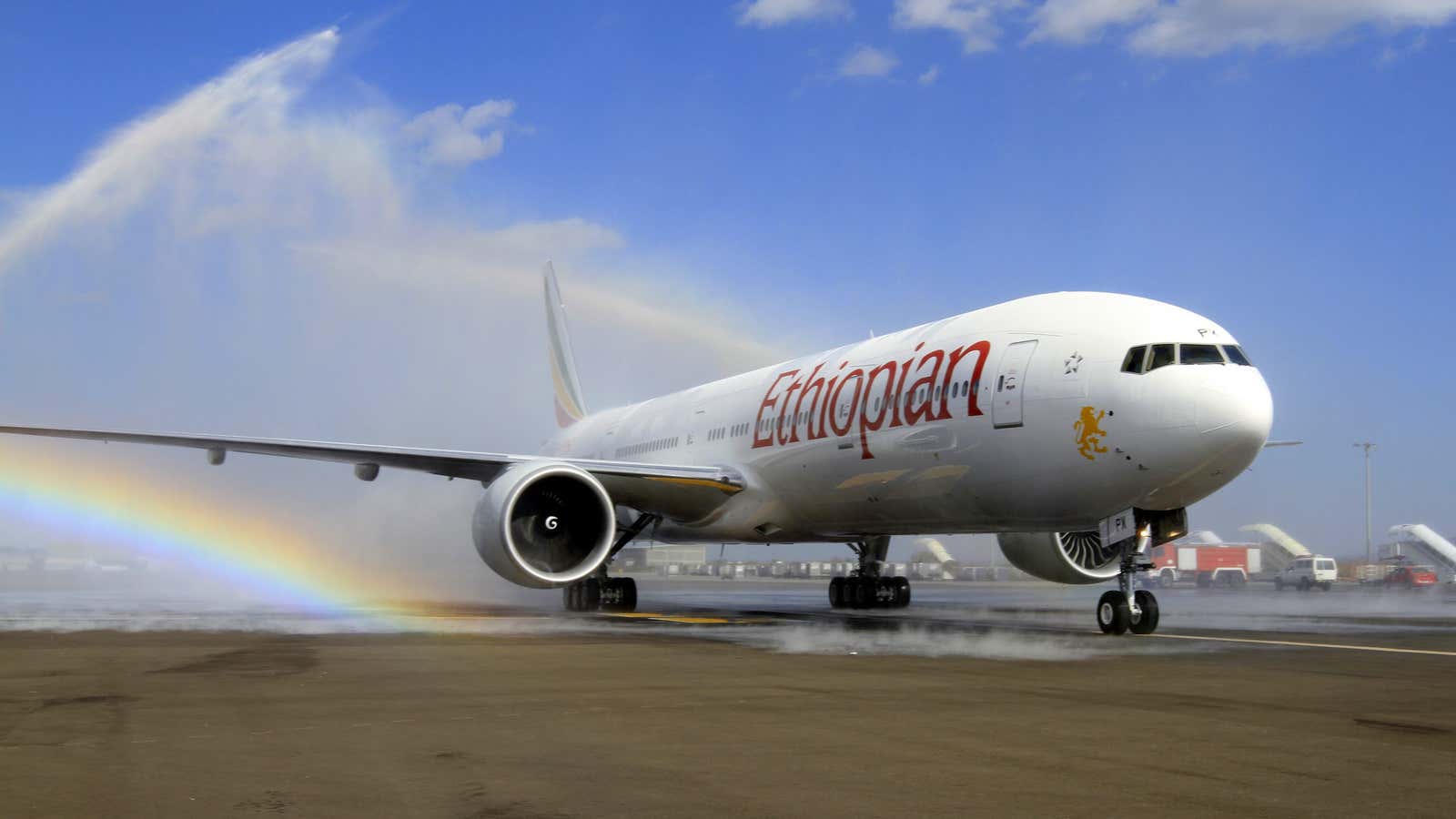Accessing the internet is a continuously problematic issue in Ethiopia.
Internet penetration remains very low across the country, with just over 15% of the over 100-million people currently online, according to the World Bank. The government also regularly shuts down the internet, blocks social media outlets, and bans news websites that report on anti-government protests. Freedom House, the US-based advocacy group, lists Ethiopia as “not free” when it comes to internet access and press freedom.
This is incongruous with Ethiopia’s standing as a host to one of the world’s largest diplomatic hubs, and is a major destination for conferences and tourism. The government also continuously markets the country as a hospitable place to operate for foreign investors, including those in the global apparel industry.
And now, the Horn of Africa nation’s carrier wants to offer free internet connection at its main hub in the capital Addis Ababa. The move by Ethiopian Airlines is part of an effort to improve customer service, upgrade overall passenger experience, and make Bole International Airport the best in Africa. The airline is currently implementing Vision 2025, which will see it improve its passenger and cargo transport, increase airport services, and expand its aviation academy.
“Availability of seamless customer-focused service, both onboard and at the airports, defines the rule of the game in today’s hyper-competitive airline industry,” said CEO Tewolde GebreMariam.
Over the last few years, Ethiopian Airlines has doubled down on its ambition to take over the African skies. This comes as the government-owned airline, which flies to more than 100 destinations worldwide, continued to register an average growth of 25% a year in the past decade. Its expansion plans have also been boosted as regional competitors like Kenya Airways continue to struggle, bedeviled by staff strikes and financial woes. In August, Ethiopian also announced it was in negotiations to take over the troubled Arik Air, Nigeria’s largest airline.
Much of the growth in its operations is also centered in Bole airport, whose two terminals continue to be the country’s main gateway to the world. Currently, China’s Exim Bank is funding a $345 million expansion project, which will increase its annual passenger traffic from the current 7 million to 22 million.
But even as the government promises to connect foreign travelers, it would benefit more if it helped bring more of its own people into the digital world. Or at least, not block those who are already online.
